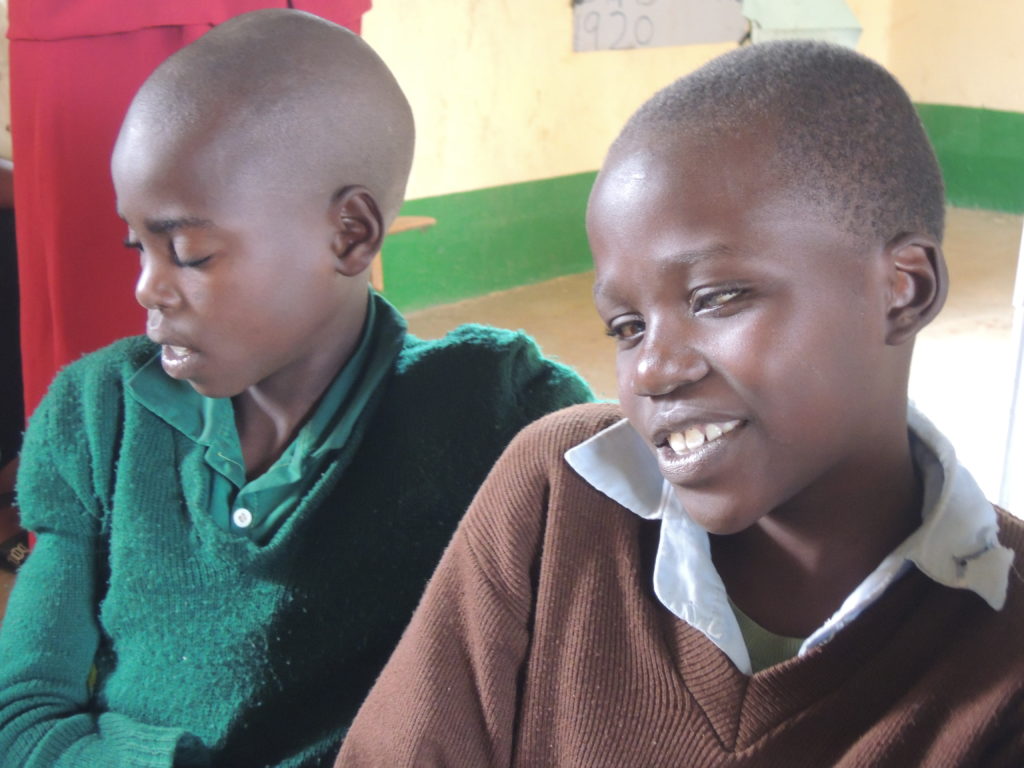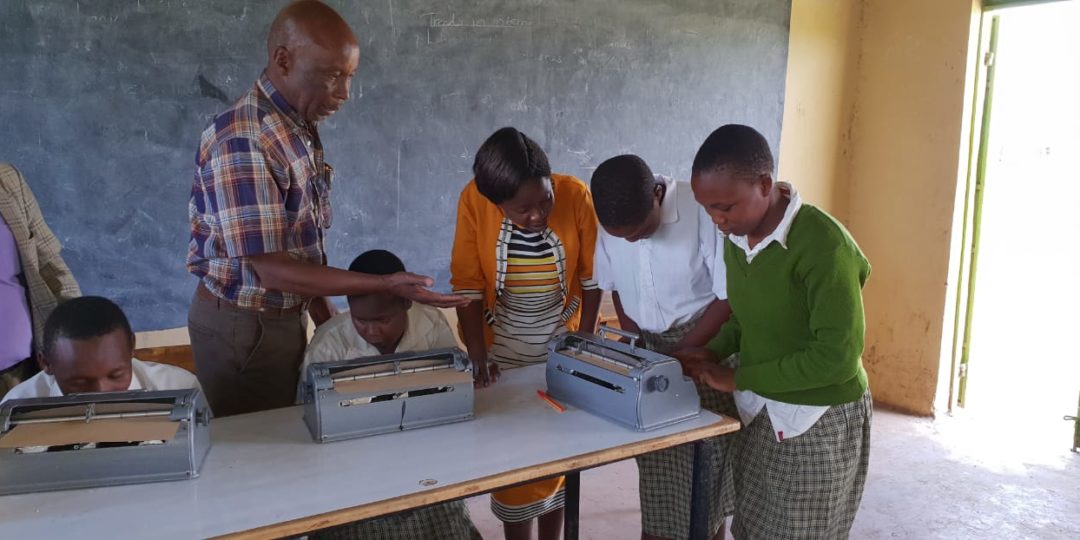The number of blind and partially sighted people is very high in Kenya (more than 9 % of the population) which is usually the case in African countries. Poverty and Disability are mutually dependent and untreated eye diseases result in severe and irreversible damage. But also poor hygienic conditions or malnutrition are leading causes. Every child in Kenya, even those who are blind or partially sighted, has the right to education. Consequently, one would expect that each class has affected children. The truth is: only a few of them attend school because the majority of schools are not prepared to create equal opportunity in education for blind or low vision children. These schools are not equipped with magnifying aids such as magnifying glasses and large print texts or computers and braillers for blind children.

Salus Oculi Kenya, the project partner of Ananse, supports schools to purchase materials and aids needed for inclusive eduction. Furthermore, we build special needs centres at general schools where special education teachers can work. Besides, we conduct awareness campaigns to inform families about how important and necessary it is for children to receive education.
See Africa, an organisation which cooperates with Ananse, coordinates sponsorships in order to finance school fees and the initial equipment, which include school uniform, exercise books, pens or magnifying glasses. Salus Oculi transfers the school fees, gives advice to children, their parents and schools in order to ensure school attendance.
